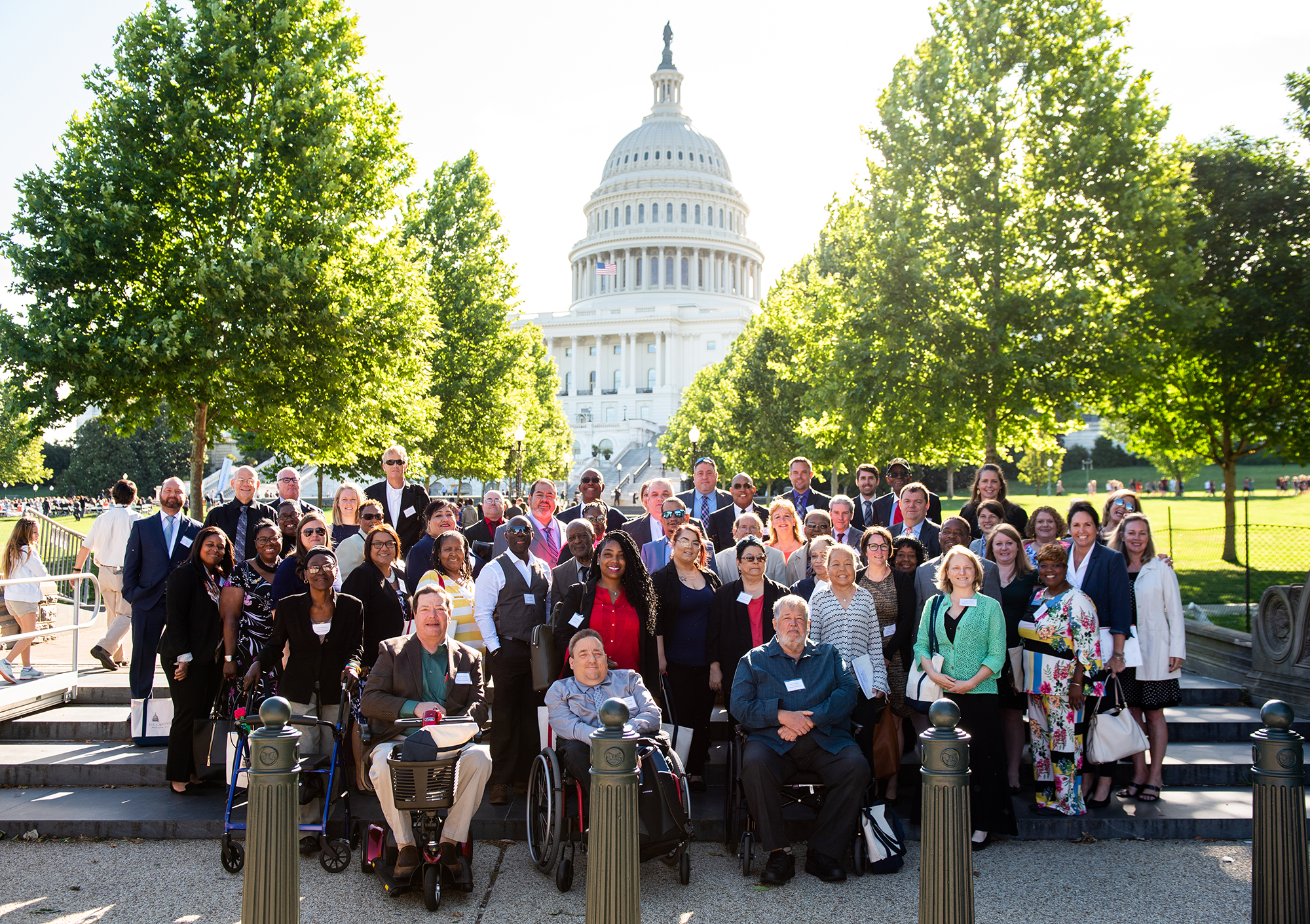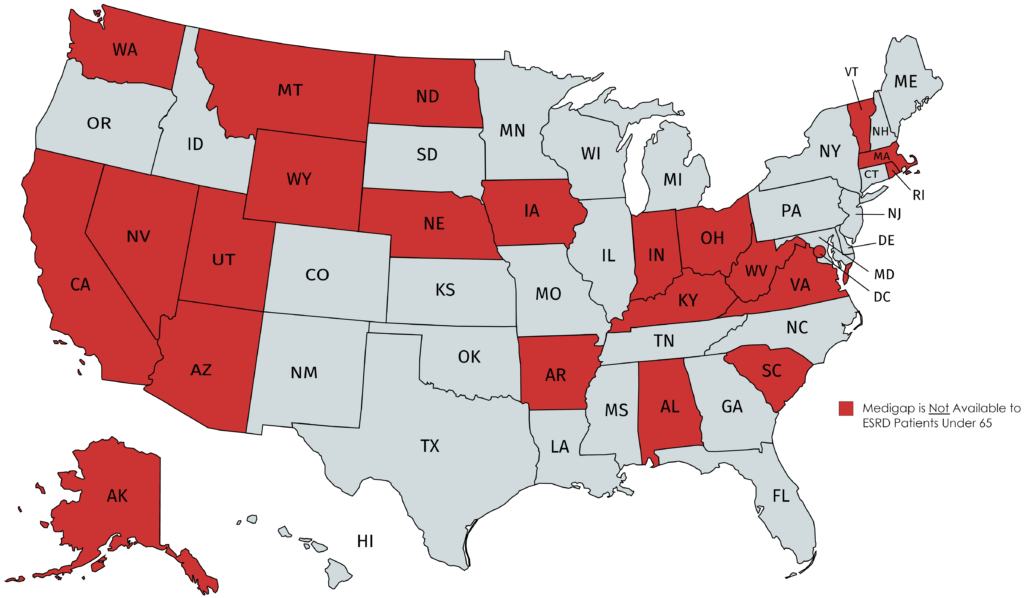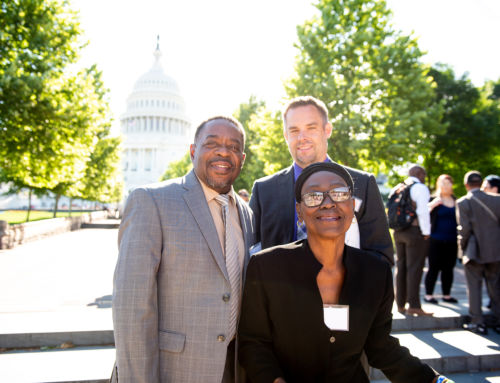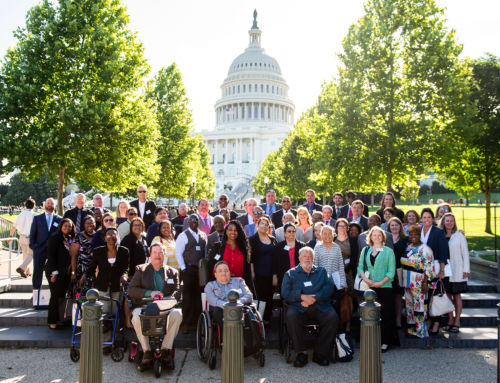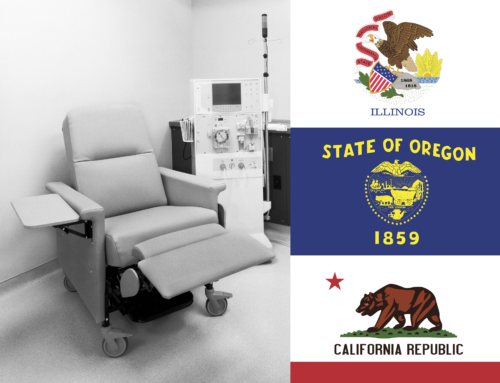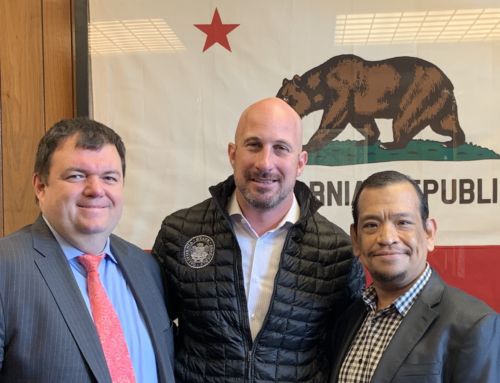Activists from across the country gathered on Capitol Hill to advocate on behalf of dialysis patients at DPC’s Annual Advocacy Day on June 11, 1019. Advocates represented 26 different states and had over 100 meetings with Members of Congress and their legislative staff. The focus of the Hill discussions centered around preserving access to Charitable Assistance and ensuring access to Medigap for all dialysis patients.
Charitable Assistance
Charitable Assistance is financial assistance a patient may receive from certain organizations to help with medical bills or premium payments. One out of five individuals with end-stage renal disease (ESRD) use Charitable Assistance.
Access to insurance coverage, both primary and secondary, is critical for all ESRD patients. Some patients are unable to afford the high premiums associated with insurance coverage.
Organizations such as the American Kidney Fund provide financial assistance in these cases to ensure patients are able to secure the coverage they need.
Insurers have tried to refuse such assistance in order to remove the sickest patients, like ESRD patients, off their plans.
Medigap
Medigap policies are standardized, private insurance policies that cover costs not covered by Medicare, such as copayments and deductibles.
Under Federal law, Medicare beneficiaries age 65 and older are guaranteed access to Medigap policies, but beneficiaries under age 65, including many with ESRD, do not share this protection.
Currently, only 28 states provide ESRD patients under 65 with guaranteed access to Medigap (highlighted in gray). In 2013, 61 percent of Medicare beneficiaries with ESRD were under age 65, and only 11 percent had Medigap coverage.
ESRD patients require either dialysis or kidney transplants to survive. Both treatments are costly, and without supplemental coverage, Medicare patients bear significant out-of-pocket expenses.
Looking Ahead
We will continue to work hard to ensure optimal dialysis care through continual improvement of public policy.
As a patient-led organization, we know that our success in improving dialysis patients’ quality of life is due to the dedication and involvement of individuals like you. We hope that you will join our grassroots movement by learning about our Patient Ambassador Program and applying to join.
Stand up for patients by getting involved in DPC. Over 500,000 ESRD patients in the United States need your support!

